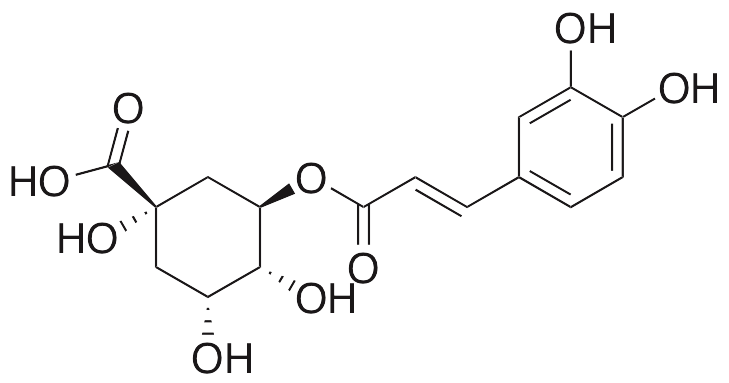Description
Chlorogenic acid is a polyphenol derivative of caffeic acid found in Lonicera that exhibits a wide variety of beneficial properties, including antibacterial, antioxidative, anti-inflammatory, hepatoprotective, neuroprotective, anti-allergic, anticancer chemotherapeutic, and chemopreventive activities. Chlorogenic acid alters membrane stability of bacteria such as Staphylococcus, and may also inhibit pepsin activity. Chlorogenic acid also prevents acetaminophen-induced liver injury, preventing activation of caspases 3 and 7 as well as phosphorylation of ERK1/2, JNK, and p38 MAPK; it also increases levels of glutathione and thioredoxin and increases activity of glutathione reductase and thioredoxin reductase, preventing oxidative stress and apoptosis in vitro. In similar in vivo models, chlorogenic acid prevents activation of NF-κB and decreases expression of toll-like receptor 4 (TLR4), myd88, iNOS, COX-2, TNF-α, IL-6, and IL-1β. This compound decreases histamine release and inhibits mast cell activation, preventing systemic anaphylaxis. In vitro, chlorogenic acid inhibits dopamine oxidation and interactions between dopamine and α-synuclein, indicating potential benefit in the treatment of Parkinson’s disease. Additionally, this compound inhibits DNA methyltransferase (DNMT) in a non-competitive manner and also inhibits glucose-6-phosphate translocase, decreasing expression of matrix metalloproteinase 2 (MMP2) and inhibiting glioma cell migration.
